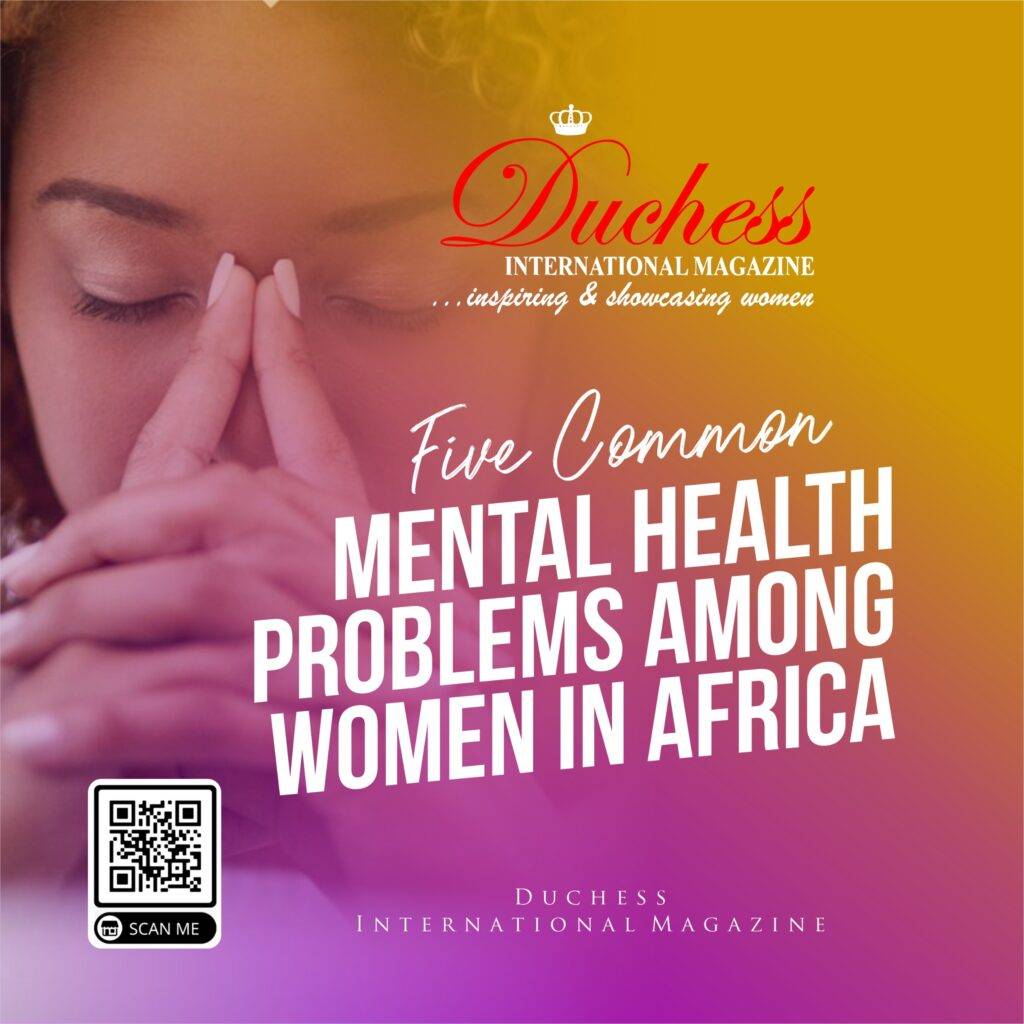The conversation around women’s mental health in Africa has become more critical. Despite major advancements in healthcare systems, millions of women across the continent continue to battle mental health challenges that remain largely unaddressed. On World Mental Health Day 2024, we take a closer look at the often-overlooked mental health struggles of African women, highlighting the common issues and the challenges they face in accessing care.

1. Depression: The Silent Epidemic
Depression is one of the most widespread mental health disorders globally, and African women are disproportionately affected. Research indicates that the incidence of depression is notably high among women due to multiple factors, including poverty, domestic violence, and the emotional toll of caregiving. However, only a fraction of those affected receive treatment due to stigmatization and lack of access to mental health services, particularly in rural areas. This silent epidemic remains a leading cause of disability across the continent.
2. Anxiety Disorders: Constantly on Edge
Anxiety disorders, ranging from generalized anxiety to panic disorders, are increasingly common in African women. The daily stress of balancing family life with economic responsibilities, combined with societal pressures to conform to specific roles, amplifies feelings of worry and fear. In African countries where healthcare systems are underfunded, mental health care for anxiety disorders is often insufficient, leaving many women to endure these conditions in silence.
3. Post-Traumatic Stress Disorder (PTSD): A Response to Violence
Women in Africa face heightened risks of experiencing gender-based violence, armed conflict, and other traumatic events, which significantly increases their vulnerability to PTSD. Survivors of domestic abuse, rape, or civil unrest often struggle with PTSD without receiving adequate psychological support. Many women remain silent due to fear of stigma, while others lack access to specialized mental health services in conflict-prone regions.
4. Substance Use Disorders: Coping Mechanism Gone Wrong
Substance use disorders are becoming more prevalent among African women, particularly in urban areas. Substance abuse often begins as a coping mechanism for dealing with emotional pain or stress but can quickly spiral into dependency. Alcohol and drug use, while historically lower among women, is rising in some African communities as they grapple with economic hardships, further complicating the mental health landscape.
5. Postpartum Depression: The Hidden Struggle of New Mothers
Postpartum depression (PPD) is a major but under-recognized issue affecting many new mothers in Africa. Cultural expectations for women to seamlessly transition into motherhood often overshadow their mental health needs during this critical period. The lack of awareness about PPD and limited access to maternal mental health services prevent many women from seeking help, leaving them to struggle with feelings of sadness, irritability, and guilt on their own.
Addressing these mental health issues requires a multi-faceted approach. Increased investment in mental health services, public awareness campaigns, and destigmatizing mental health problems are essential to creating an environment where African women can access the care they need. Governments, non-governmental organizations, and community leaders must come together to address the mental health crisis, ensuring that women across the continent receive support for their emotional well-being.
As the conversation on mental health in Africa continues to grow, the need to focus on women’s mental health challenges is more pressing than ever. Only by prioritizing this issue can we ensure a healthier, more equitable future for African women.



